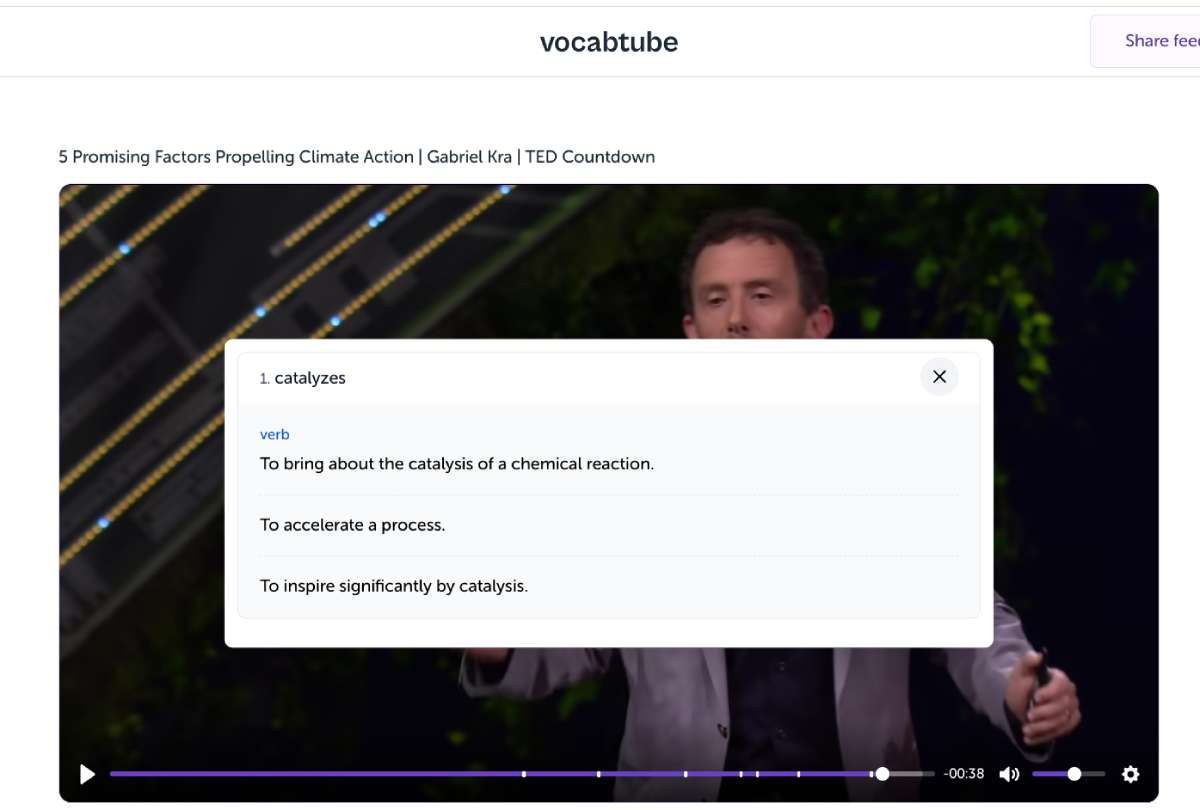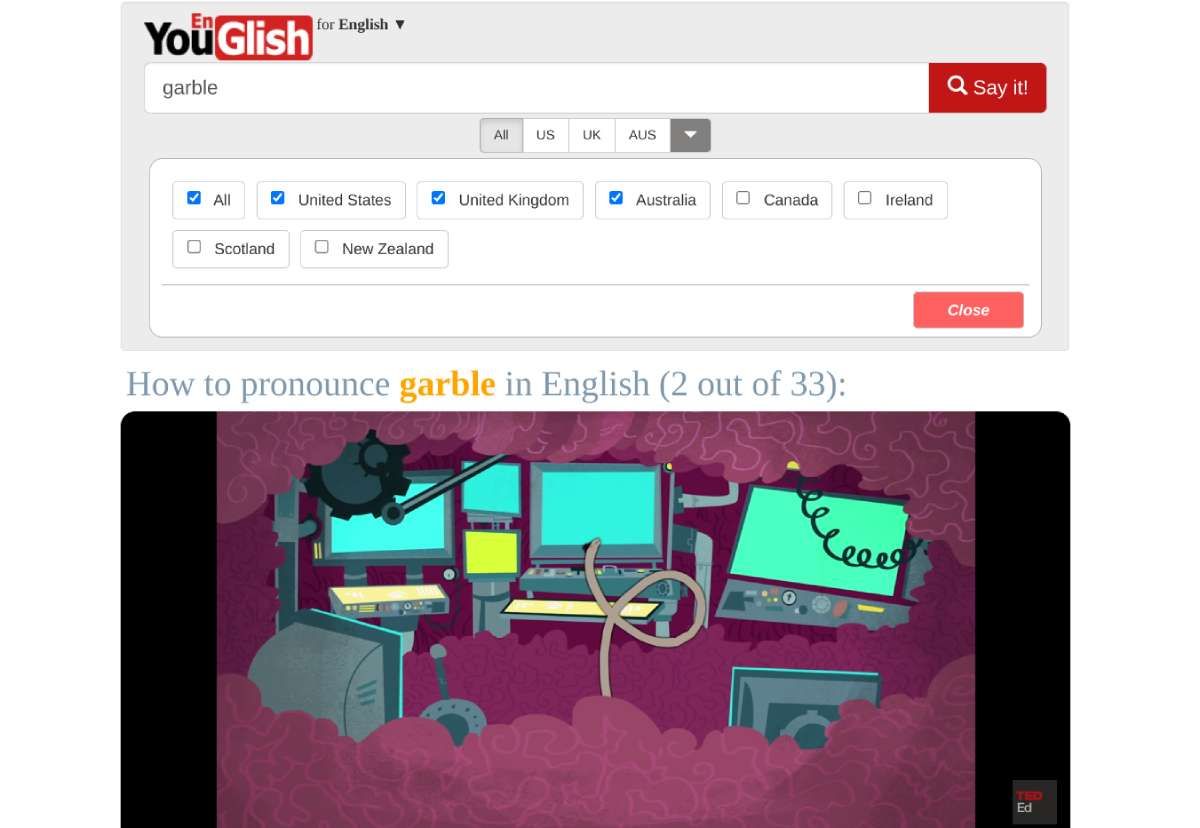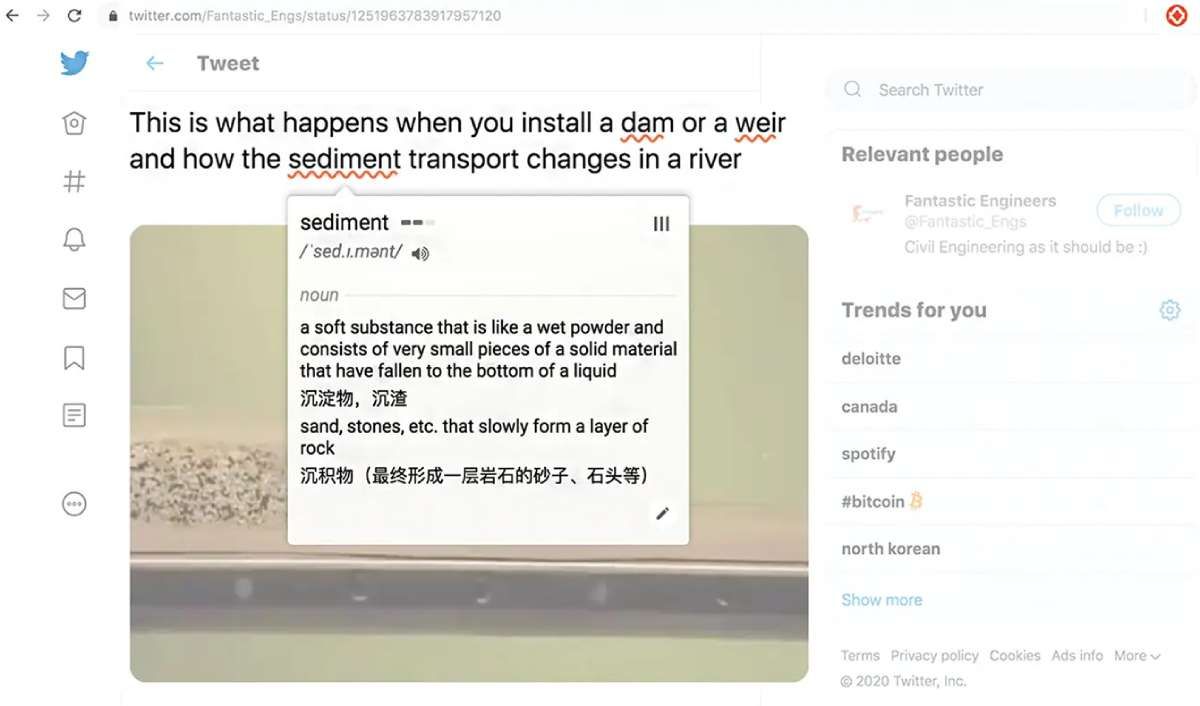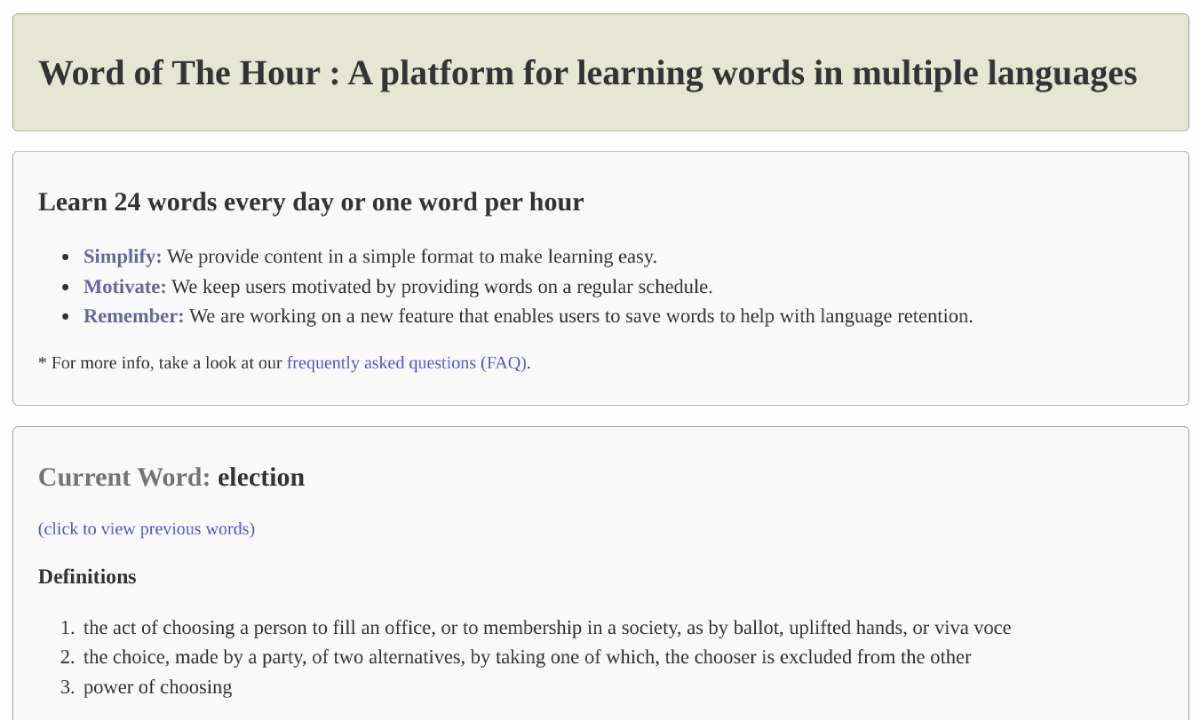It's estimated that the English language includes roughly one million words. It would be almost impossible to know them all, but these apps and websites make it easier to build your vocabulary, whether you're learning English or already speaking it fluently.
The internet offers various ways to learn and speak English, from free courses to cute apps that slowly improve your skills. This article will look at practical ways to build your English vocabulary and learn how to use those words in common speech.
1. VocabTube (Web): Build Vocabulary While Watching YouTube Videos
Language learners are often advised to watch movies and TV shows to pick up words from everyday speech. Since YouTube has a large collection of free English videos, it's a great resource to expand your vocabulary while watching something fun and educational.
VocabTube recommends several videos from fascinating and educational YouTube channels like TED and Kurzgesagt by default, but you can copy-paste any video with closed captions to use in the app. Once it starts playing, you can click any word in the closed captioning to look up its meaning. The video pauses by default while a small bubble displays the dictionary definition.
Going forward, VocabTube plans to introduce the ability to save words as flashcards and create decks to revise your vocabulary. But for now, it's still a neat and unobtrusive way to watch YouTube videos and look up meanings.
2. YouGlish (Web): Pronunciation and Common Usage of Words Through YouTube
If you look up a word on the best dictionary and vocabulary apps to learn how to pronounce it, you'll find the meaning and an audio clip. But if you plan to use it in everyday speech, you need to know how real people use it. YouGlish can help with that.
When you search for a word on YouGlish, it finds the word used in YouTube videos and picks three random videos. The idea is that YouTube videos will demonstrate common parlance rather than someone trying to teach you how to use the word. Plus, with three different usages by different people, you'll get a better idea of the different contexts to use that word and how to pronounce it.
You can also quickly look up the meaning of the word, or any other words by clicking the subtitle. YouGlish will also give you tips on how to make it easy to pronounce that word and show nearby words. You can also choose between US, UK, and Australian English.
3. Burning Vocabulary (Chrome, Edge): Look Up Words Anywhere, Add to Your Flash Cards
Burning Vocabulary looks like a simple browser extension, but it has a lot of cool features that make it better than what it seems like. At its base level, it enables you to look up the definition and pronunciation of any word in your browser. It even works with words on social media, Netflix video subtitles, and anywhere you can click and highlight a word.
The definition pops up on a card next to the word, along with an automatic pronunciation read out loud. The word is also added to your personal dictionary, which you can check in the dashboard. If you ever come across the word again in other articles, you'll find it is already underlined to denote it's one of your saved words.
In the dashboard, you'll see a day-by-day list of words you have added. Burning Vocabulary also saves a snapshot of the original sentence you read the word in. You can also test your memory through flashcards, which can be quizzed in order or randomly.
Download: Burning Vocabulary for Chrome | Edge (Free)
4. WordUp (Android, iOS, Windows): Learn the Most Practical Words in English
WordUp analyzed over 600,000 movies and TV shows to come up with a list of the most commonly used words in English, and is on a mission to help you know and remember them. When you set up the app, you'll first be prompted to take a test to figure out your current knowledge level, so that the app can then recommend words for you.
Each word comes in a card, which you have to swipe up or down in a Tinder-like manner to indicate if you know it or not. The words you don't know will be added to your personal dictionary so that you can revisit them.
Each word in your dictionary includes all its meanings, clear pronunciations, as well as places it has been used. WordUp mixes clips from movies and TV shows, news broadcasts, YouTube videos, and online articles, to show you different ways the word is used in common parlance.
WordUp then uses the time-tested spaced repetition method to improve memory by quizzing you about these words in periodic intervals. If you get it right, the period lengthens over days, weeks, and months. If you are able to remember a word over a year apart, you've committed it to memory.
Download: WordUp for Android | iOS | Windows (Free)
5. Word of the Hour (Web, Mobile, Desktop, Browsers): Learn 24 New Words Every Day
As the name suggests, Word of the Hour helps you learn a new word every single hour of the day. You'll find multiple definitions of the word, as well as translations in several different languages (hopefully one of which you already know well).
What we particularly liked is how it ensures you don't miss out on a new word. Word of the Hour has extensions for all popular browsers, where you can quickly check the new word. There's a phone app and desktop software that will send a notification with the latest word. You can even install it on Roku TVs or add it to Slack for regular updates in the chat app.
Building your vocabulary is often simply about being prompted to read more, and Word of the Hour does that splendidly. You can also check all past words on the Word of the Hour subreddit, as well as participate in the community.
Download: Word of the Hour mobile for Android | iOS (Free)
Download: Word of the Hour extension for Chrome | Firefox | Opera (Free)
Download: Word of the Hour for Windows | macOS | Linux (Free)
Practice Your Vocabulary While Talking
So you have all these different ways to build your English vocabulary, but remembering these words takes practice. But that doesn't mean writing them in your next assignment but actually saying the word out loud. Language tutors recommend using the words in your regular speech as much as possible. You can try online conversational English tutors or speak to someone in your regular life, just make sure you consciously try to use the new words in your vocabulary and that will help make them stick.





